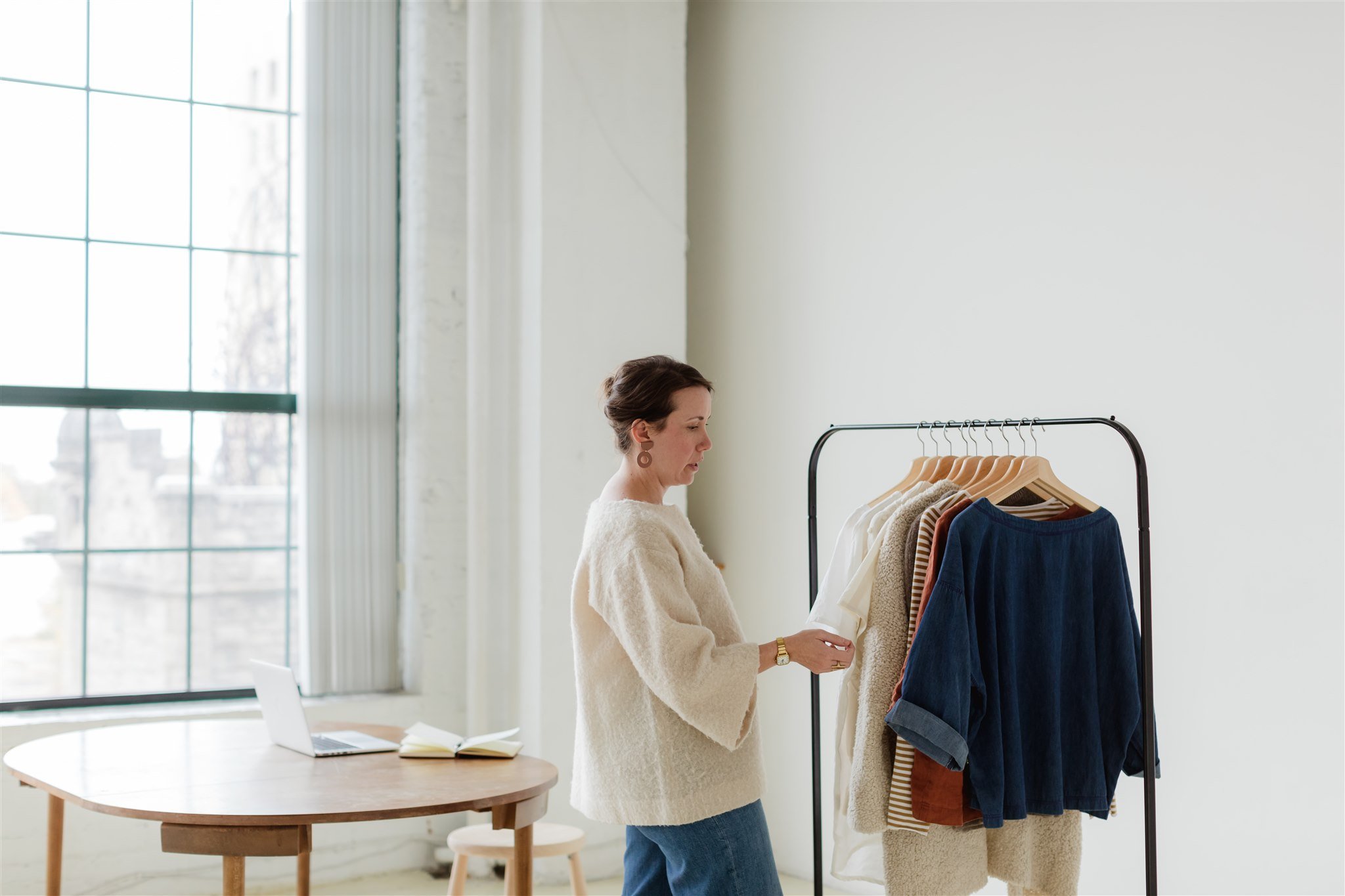I don’t think I’ve talked much about why or how I became a personal stylist.
All my life, I’ve loved clothes and fashion. I typically didn’t have the stuff all the cool girls had, but I was always cataloging what those things were. I grew up in Mobile, Alabama, but my mom was from Los Angeles and we visited family there at least once a year. L.A. was where I really saw the cool kids.
In my experience, people are either comfortable with clothes or they’re not. My grandma, sister, and I were. My mom and my other sister were not. In my memory, I started helping my mom with her clothes pretty early on, although you’d have to check with her to see if my memory is correct. We would clean out her closet, put outfits together, and I would pick out a few new things she needed to buy. Over time, I did the same thing for my sister, friends, and boyfriends.
I’ve never really known what I wanted to be when I grew up. In high school, I wanted to be a writer or a journalist or a classical musician. Definitely something in the arts. For a lot of reasons that I won’t get into here, I decided to double down on classical music, but reconsidered that choice over and over throughout my 20’s. When I was in my mid-30’s, I decided to make a change, mostly because I was exhausted from stressful jobs that felt like they left no energy for life outside of work. I did all kinds of things to try to figure out what work would be best for me. I read What Color is Your Parachute. I enrolled in library science school. Finally, my therapist asked, “what is something that people ask for your help with all the time?” My response was “clothes, but I could never work in fashion”. Again, that was something the cool kids did, and I was not one.
Even so, I started doing research into the various fields related to clothing. When I found the term “personal stylist”, I realized that was what I had been doing informally for the people in my life. As a job, it also fit the other aspects of my life and personality: introversion, empathic-ness (no, that’s not a word), connecting with people, helping women, and the ability to create a schedule around building a family. The (very) short version of actually starting the business is that I started a blog, then I started doing personal styling with friends for free and blogging about it, and then I sent out an email to everyone I knew saying that I was taking clients and I started charging. That was 10 years ago.
In the beginning, I had tons of imposter syndrome. I’ve never gone to a formal fashion school. I’m as they say, self taught. But as my loving husband would say, I’ve studied fashion informally for 35+ years. I’ve studied psychology, mindfulness, and personal development for 25 years. I have 30 years of experience helping individual people with their clothes. I’m also finally comfortable with saying I have an “eye” and I am good at creating aesthetically pleasing looks intuitively. More importantly in this field than any of those things, it seems that I have an ability to help people sift through their own junk (mentally and physically) and help them focus in on how they want to feel and the practical ability to logistically put that into place. At this point, I’ve been in business with very happy customers for 10 years, worked for thousands of hours with hundreds of clients, and have proven my ability to myself over time. I finally feel like I’ve earned the title “personal stylist”.










